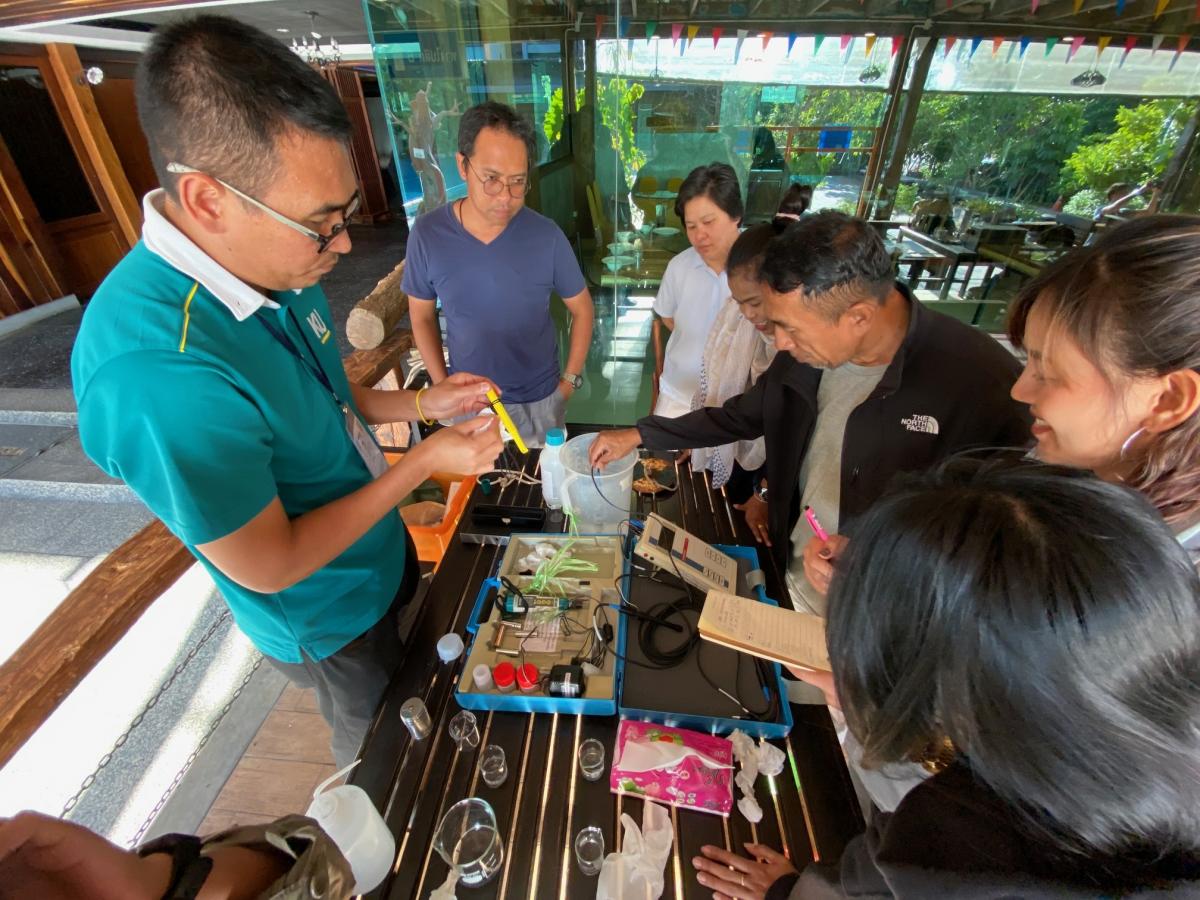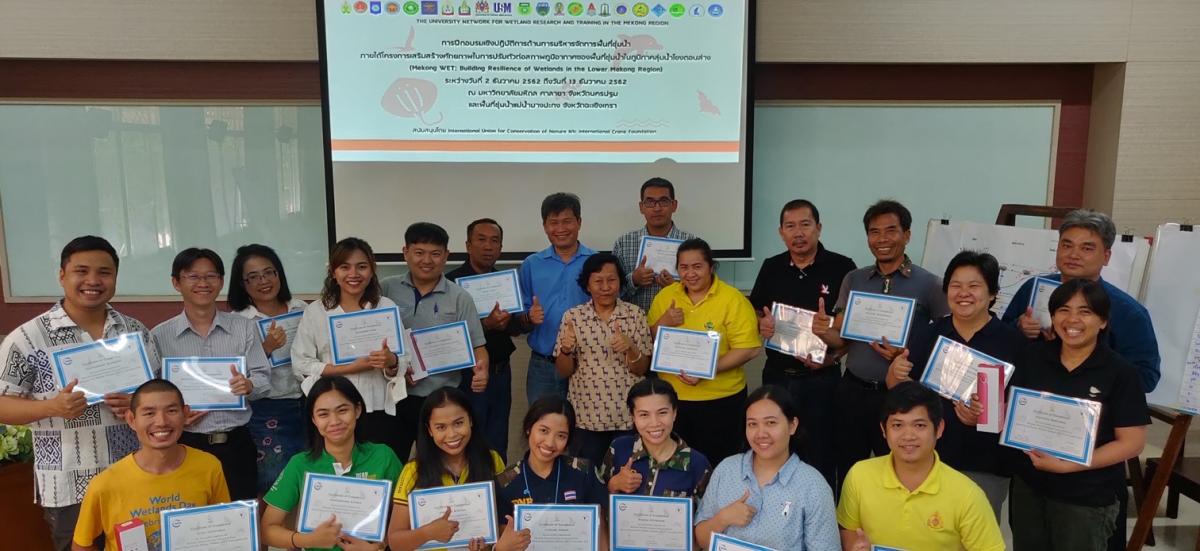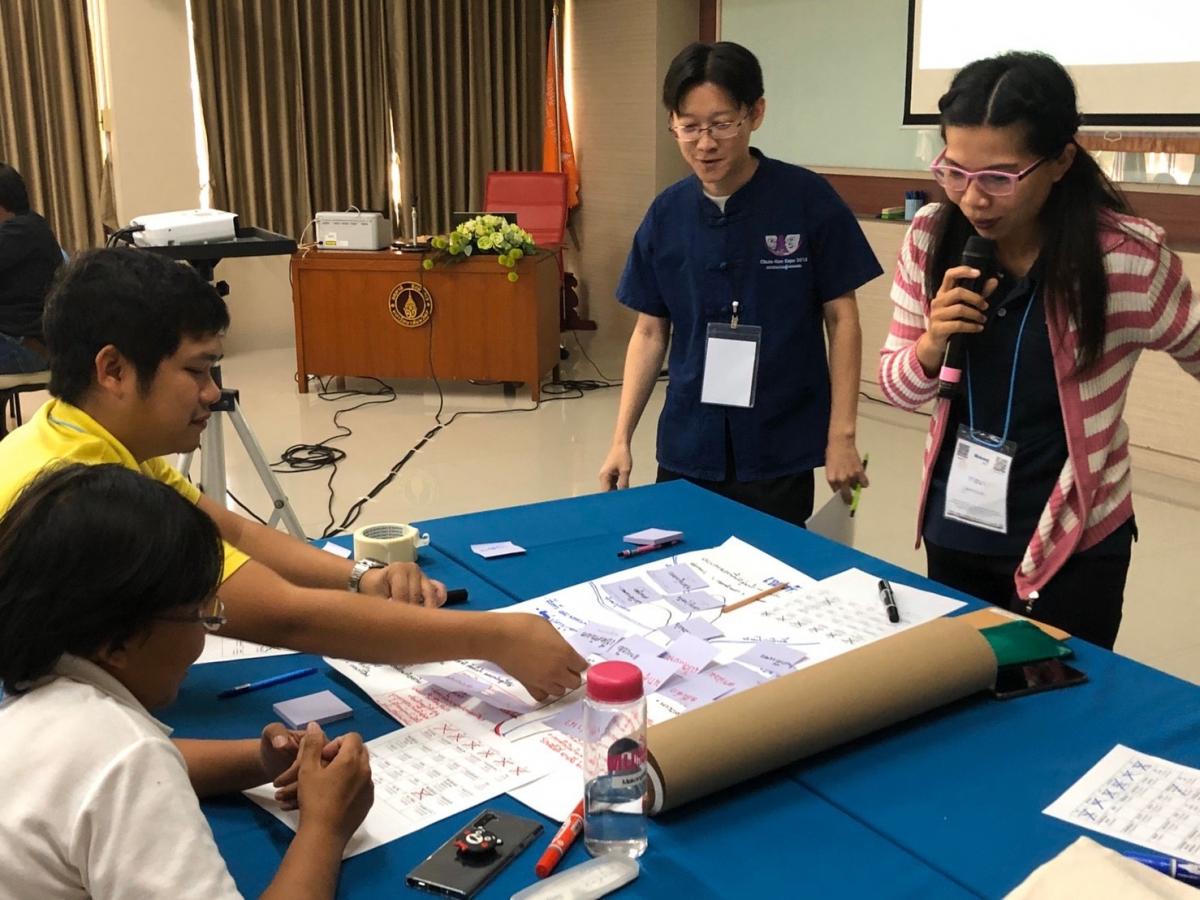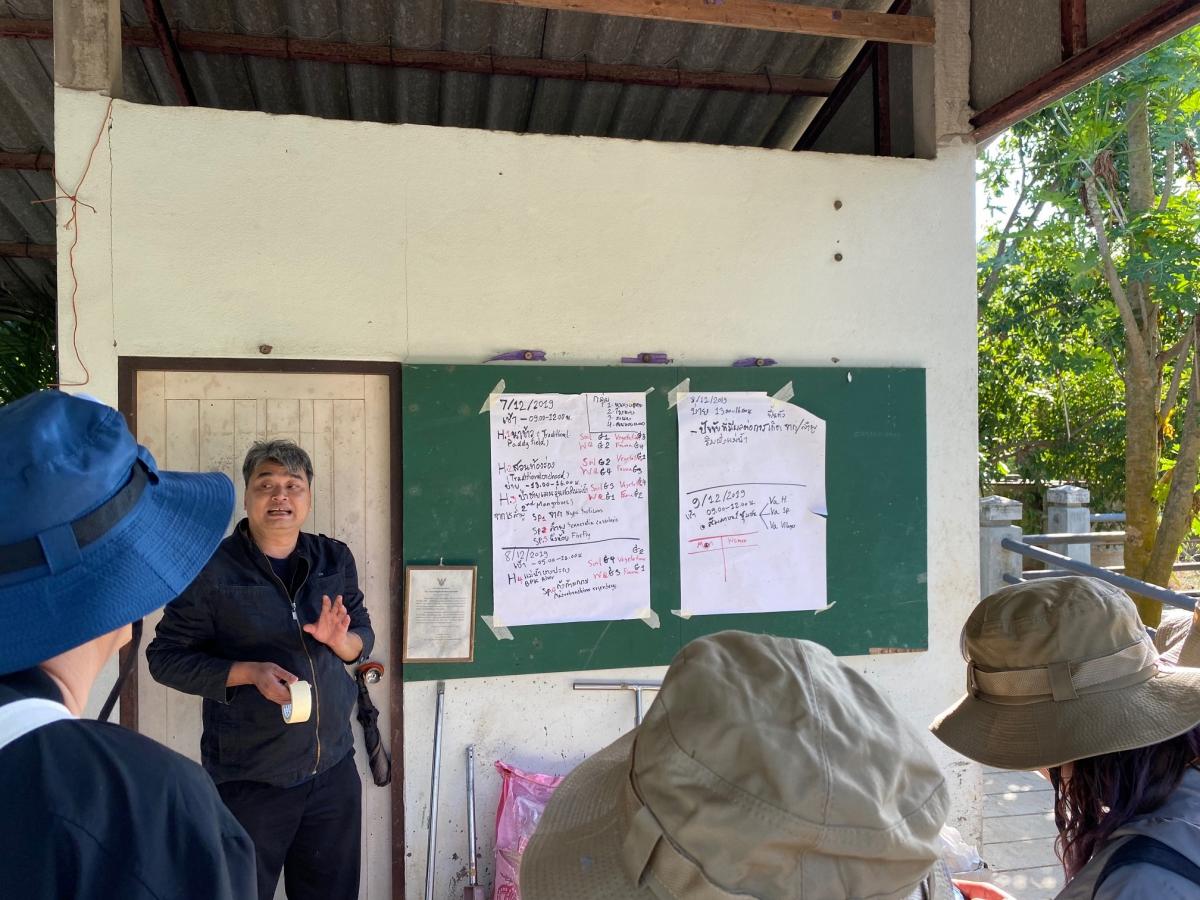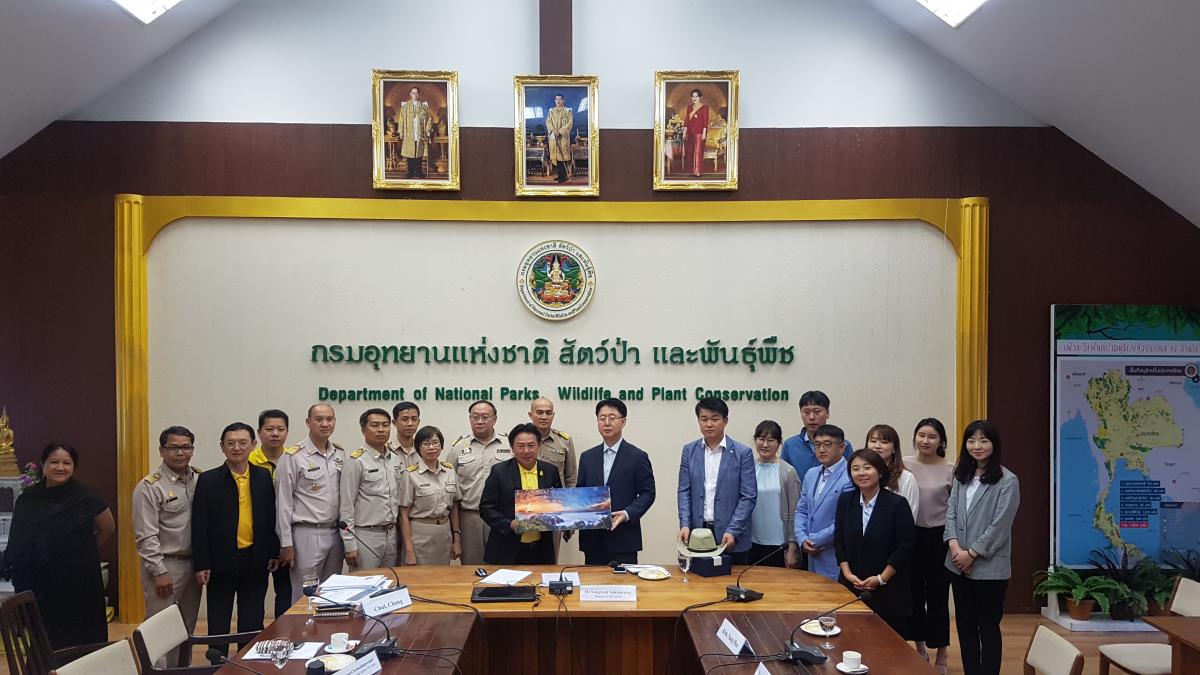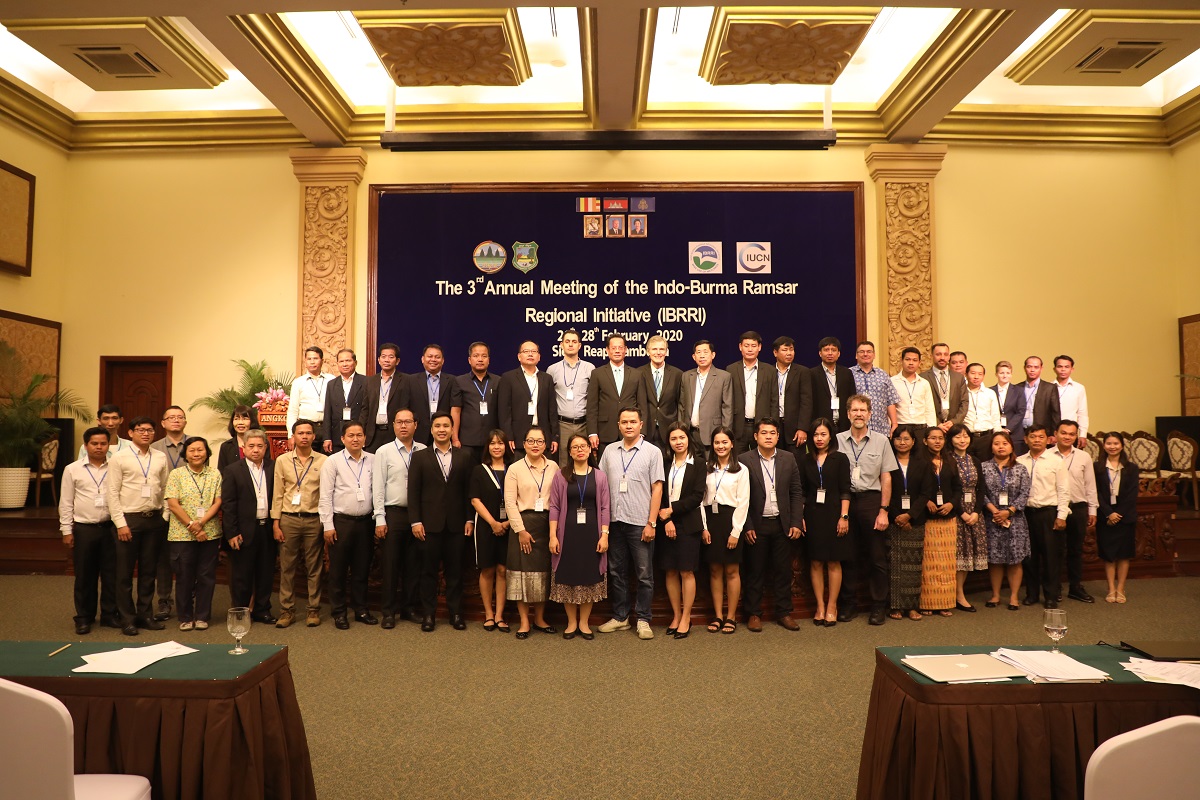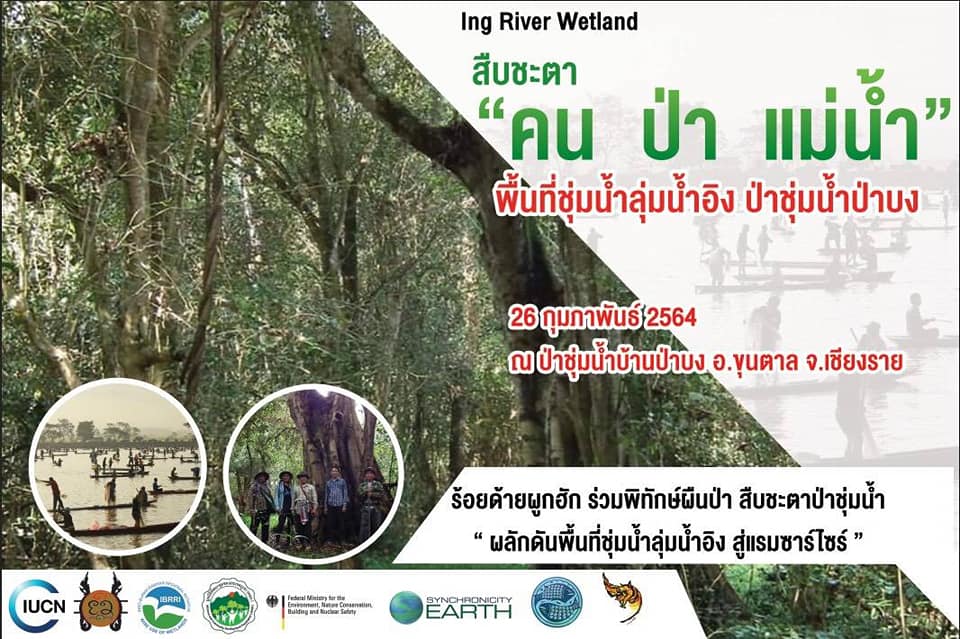IUCN collaborates with regional university network to enhance capacity of Thai wetland managers
To promote the wise use of wetlands throughout the region, IUCN, in collaboration with the Mekong Wetland University Network (MWUN), organised the Wetland National Training Course for Wetland Site Managers at Mahidol University and Bang Pakong River wetland, from 2 to 13 December 2019.
At the course, 20 representatives from the Office of Natural Resources and Environmental Policy and Planning, the Department of National Parks, local government, academic institutions and non-governmental organisations learned about wetlands ecosystems. Topics included soil and hydrology management, and the role of wetlands in biodiversity conservation, local livelihoods and climate change adaptation. University lecturers from Mahidol University, Chulalongkorn University, Kasetsart University and Mahasarakham University led the workshop.
“In this national training, we aim to strengthen the participants’ knowledge of wetlands and adaptation skills, to help them cope with climate change. Participants responsible for wetland conservation and management should return to their respective sites and integrate knowledge gained from this 10-day training, to support the wise use of wetlands throughout Thailand,” said Piyakarn Teartisup, Assistant Professor, Ph.D., Faculty of Environment and Resource Studies, Mahidol University.
Participants were trained on the use of important wetland assessment tools, such as the Rapid Assessment of Wetland Ecosystem Services (RAWES), the Ramsar Site Management Effectiveness Tracking Tool (R-METT), and the Climate Change Vulnerability Assessment Tool. Participants were also taught how to develop effective wetland management plans.
Following the theoretical and technical sessions, participants visited Bang Pakong River wetland for a three-day practical field trip to apply the concepts learned, practice on-site analysis and conduct ecosystem assessments. Participants then presented information gathered in the field, during the last day of the training.
“The technical concepts that were introduced during the training are very useful. I now fully understand the importance of effective wetland management, and the technical requirements for developing a successful wetland management plan,” said Ms. Nuchjaree Purchkoo, Chief of Conservation, Bureau of Conservation and Research, Zoological Park Organization, Thailand.
This national training was organised following the regional Training of Trainers workshop, organised at U Minh Thuong National Park, Viet Nam in March 2019.
The BMU-IKI funded Mekong WET project has organised national trainings in Cambodia, Lao PDR, Thailand and Viet Nam. These national trainings are in line with the Indo-Burma Ramsar Regional Initiative (IBRRI) Strategic Plan 2019-2024, which promotes enhanced communication, capacity building, education, participation and awareness in wetlands.
About Mekong Wet
Funded by the International Climate Initiative (IKI) of the German Federal Ministry for the Environment, Nature Conservation, Building and Nuclear Safety (BMUB), and to be implemented until 2020, the “Mekong WET: Building Resilience of Wetlands in the Lower Mekong Region” project aims to build climate resilience by harnessing the benefits of wetlands in Cambodia, Lao PDR, Thailand, and Viet Nam. Mekong WET will help these countries to address their commitments to the Ramsar Convention, an international treaty for the conservation and sustainable use of wetlands, and to achieve the Aichi Biodiversity Targets. The project is also supporting the Indo-Burma Ramsar Regional Initiative (IBRRI) and the implementation of its strategic plan 2019-2024.
About the Mekong Wetland University Network (MWUN)
The MWUN is a formal network of universities in the Mekong region (Cambodia, Lao PDR, Thailand and Viet Nam). MWUN was established to provide trainings on wetland ecology, conservation and management to protected areas staff, government officials and other interested parties. The long-term goal of the network is to strengthen the capacity of member universities by establishing academic programmes in wetland ecology and conservation.
